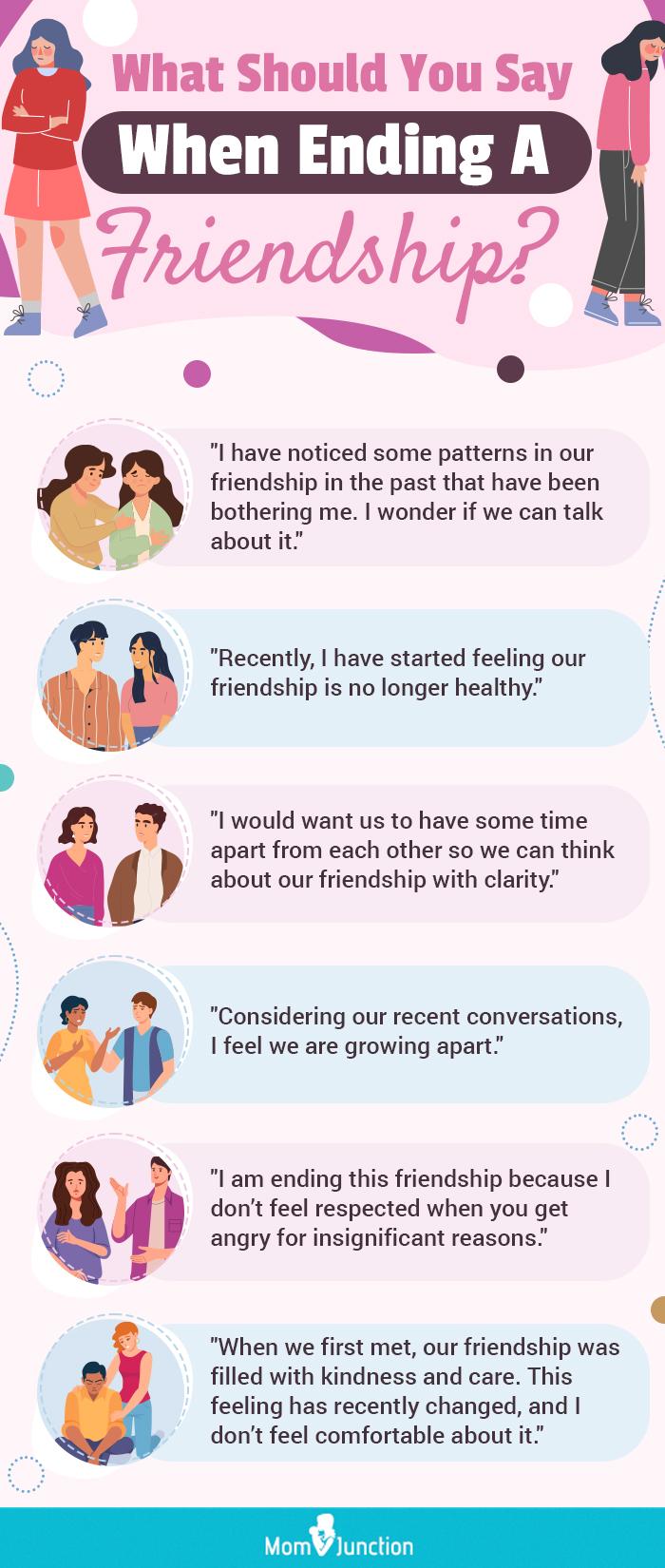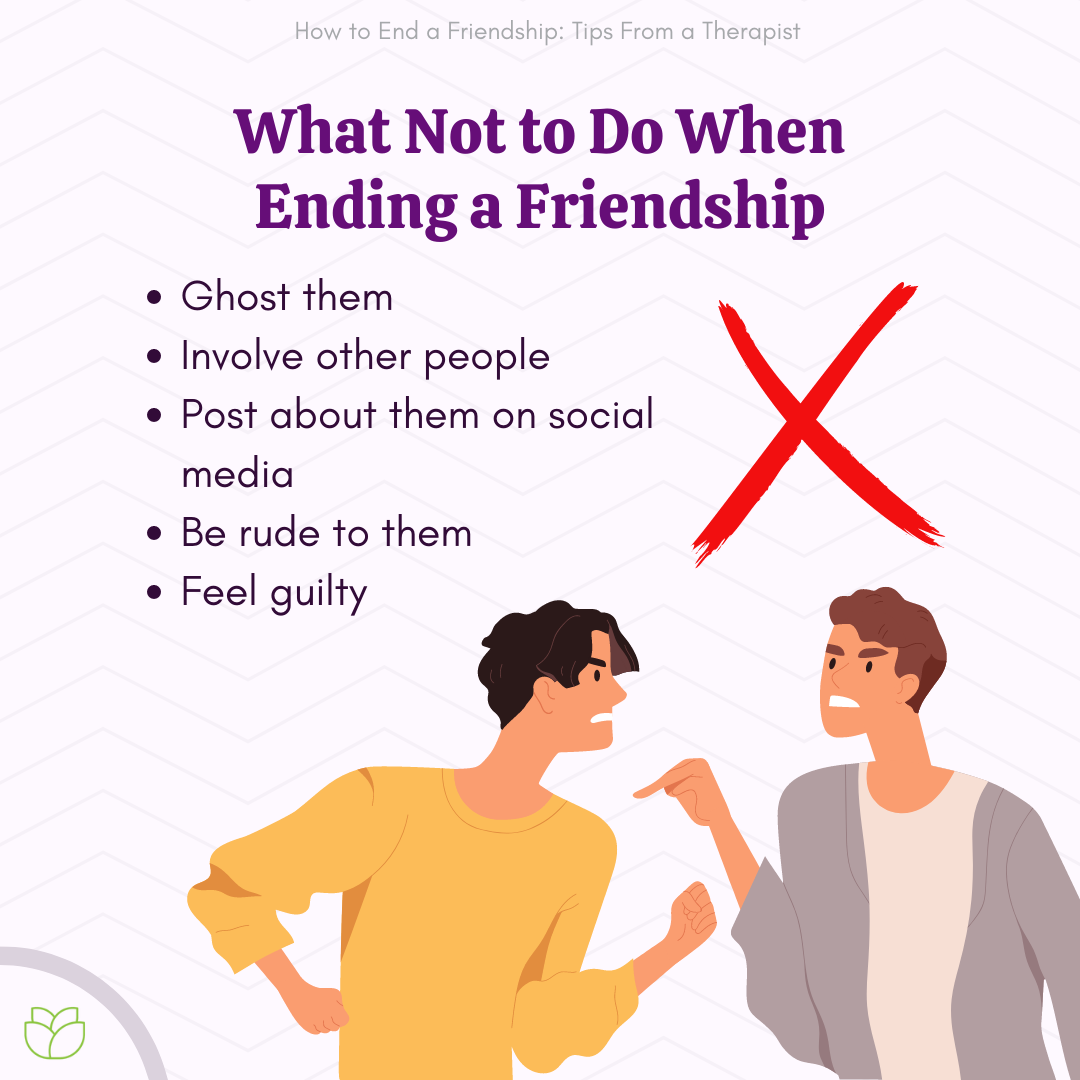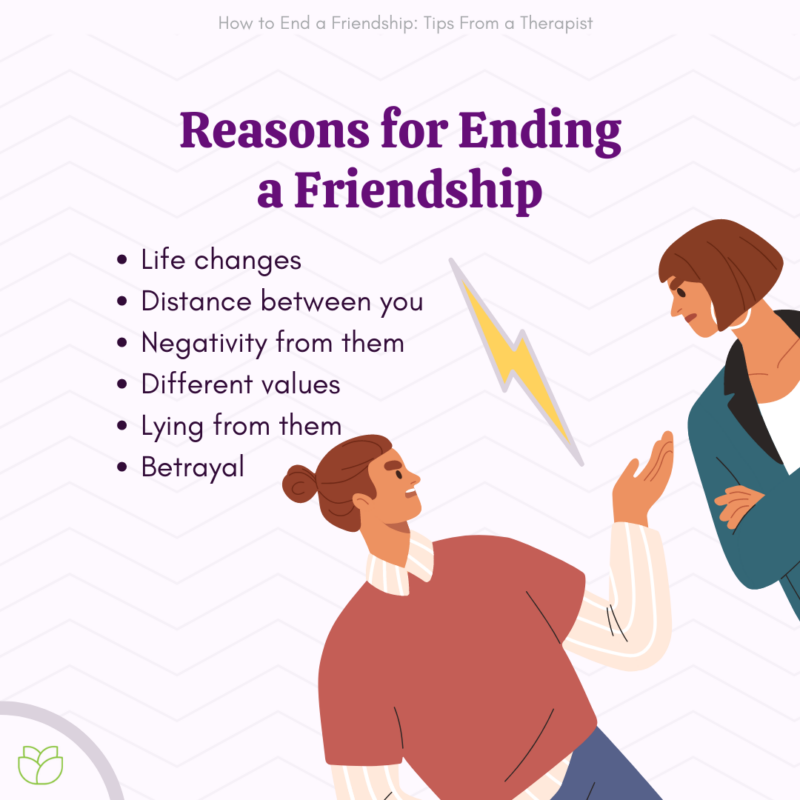Ending A Friendship: When & How To Break Up Respectfully
Is it possible that a cherished friendship has silently reached its expiration date? Feeling anxious or negative in your friendship is a powerful signal that it might be time to consider a change, a difficult truth often masked by nostalgia and the comfort of familiarity.
Navigating the intricate landscape of human connections can often feel like walking a tightrope, especially when a long-standing friendship begins to unravel. It's a journey filled with shared memories, inside jokes, and the comfort of knowing someone has your back. But what happens when the threads that bind you together start to fray? What happens when the once-familiar warmth transforms into a subtle chill, leaving you questioning the very foundation of the relationship?
The answer, though often painful, may lie in recognizing the subtle shifts, the unspoken cues that signal a shift in dynamics. Perhaps your friend is dishonest, constantly holding back information, creating a barrier that prevents true connection. As Schmitt wisely notes, "deep connections require trust." Without this crucial element, a friendship can wither, starved of the nourishment it needs to thrive.
Remember, ending a friendship can be like ending a romantic relationship, with similar pangs of sadness and a sense of loss. At times, it can be even worse. The end of a friendship doesn't diminish your worth. Embrace the positive memories, the laughter, and the shared experiences that once defined your bond, while acknowledging that sometimes, letting go is the most compassionate act for both parties.
Before we proceed, let's delve a little deeper into understanding the nuances of letting go of a friendship:
| Aspect | Details |
|---|---|
| Signs a Friendship Needs to End |
|
| Why Friendships End |
|
| How to End a Friendship Healthily |
|
| What to do After Ending a Friendship |
|
| Friendship with a Narcissist |
|
The decision to end a friendship, however, isn't always clear-cut. There are moments when a gradual fade seems appropriate, and others where a more decisive approach is necessary. Recognizing these nuances is key to navigating the emotional terrain with grace and understanding.
The reasons for a friendship's demise are as varied as the individuals involved. Sometimes, it's a slow drift, a gentle parting of ways as lives diverge. Other times, it's a sudden rupture, a confrontation of values, or a betrayal of trust. The circumstances often dictate the best course of action, the most respectful way to conclude a chapter that once held so much meaning.
In the complex tapestry of human relationships, there are patterns that become evident when it's time to consider a break. The first is when there is a significant life transition such as a career change or a relocation. Sometimes distance or new priorities make it difficult to maintain the friendship, which naturally leads to a split. Another clear sign is when you feel constantly drained after seeing your friend. If the interaction no longer provides energy or positivity, it may be a red flag, indicating the need for reevaluation. Then comes a lack of respect or harsh judgment. There is a difference between supporting and judging others, but if the relationship is characterized by negativity, it is likely to be unhealthy.
Consider this, the Oscar-nominated film "The Banshees of Inisherin" presents a powerful, albeit extreme, depiction of a friendship's end. As Barbara Graham emphasizes, the decision to end a friendship can feel like navigating a dense fog, shrouded in uncertainty. However, it can be done with thoughtfulness, ensuring that respect and empathy remain at the forefront. According to Cicero, friendship is among the most important of human relationships. He even suggests that it is better to end a friendship if it conflicts with our values. He then adds a general rule that can be applied in any human relationship: "Neither ask nor consent to do what is wrong."
Mental health experts stress the importance of ending friendships in the healthiest ways. While its never easy to call off a friendship, sometimes its for the best. At first, we think someone is busy, but then they are perpetually unavailable. Relationship experts offer telltale signs it's time to end a friendship, plus the do's and don'ts of going about it maturely.
Relationship experts offer telltale signs it's time to end a friendship, plus the do's and don'ts of going about it maturely. You can start with a "breakup conversation." Make sure your friend understands why you are ending the relationship, but don't start an argument in order to end things. Once you've made the decision to end your friendship, you can't then go and start an argument. It's bad form and it really won't accomplish anything.
Friendship breakups mirror romantic breakups in their potential to trigger a cascade of emotions. However, like the slow burn of a film like "The Banshees of Inisherin," the process of disentangling from a friend can be fraught with pain. As you navigate these complex emotions, remember that you are not alone. Show up for yourself by doing things that bring you joy. By tending to your own needs, you'll gradually heal and find the strength to move forward.
When the friend in question is a narcissist, ending the friendship is often the healthiest path. While it's never easy to call off a friendship, sometimes its for the best. They thrive on control and validation, and their behaviors can be emotionally draining. These friends may often be dishonest or hold back information. Ending the friendship with a narcissist will be easier if you follow five steps. Make sure your friend understands why you are ending the relationship, but don't start an argument in order to end things. Recognize that they might not understand your reasons, and be prepared for them to react defensively or even manipulate the situation.
Once you've made the decision to end your friendship, you can't then go and start an argument. It's bad form and it really won't accomplish anything. If you are the one that initiated the ending of the friendship, there are steps you can take. The best course of action is to end it in a way that avoids hostility and the enlistment of other friends. Remember that the end of a friendship doesn't diminish your worth.


